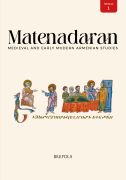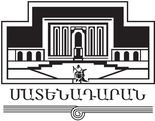The Context of Kingship: Armeno-Georgian Claims and Rule in the 12th‑13th Centuries
Keywords:
12th Century, Medieval, Political History, Georgia, Armenia, Prosopography, Zakarid, Mkhargrdzeli, Orbeli, BagrationidAbstract
This paper aims to examine the political situation in which the major Armeno-Georgian elite families of the later 12th and early 13th centuries held and maintained positions of power under the broad hegemony of the Georgian Bagratid dynasty. It reassesses some aspects of recent historical research and provides context based upon a brief analysis of other rulers within the Bagratid hegemony, especially in the case of the polity of Shirvan. The paper argues on the basis of these assessments that we should see claims of royal status by Armeno-Georgian elites as being accepted within the wider political frameworks of the Bagratids, rather than being a potential problem or threat to that system. Attempts to use royal and heroic ancestries not only helped secure their holders’ claims to rule in particular regions, but were also visibly celebrated as reflecting positively on the Georgian monarchs as senior rulers. The necessity for such families as brokers between the Armenian highlands and the Georgian court created a situation, mirrored in some other relations between the Bagratids and their neighbours, where it made sense for both parties to secure those relationships by accepting and indeed expanding ancestry claims and noble titulature.
Downloads
Published
How to Cite
Issue
Section
License
Copyright (c) 2024 Matenadaran: Medieval and Early Modern Armenian Studies

This work is licensed under a Creative Commons Attribution-NonCommercial 4.0 International License.



